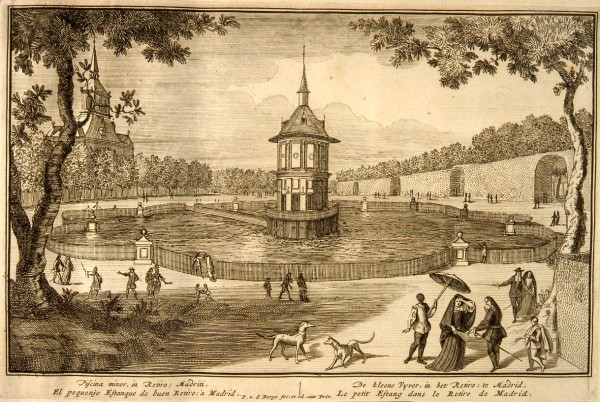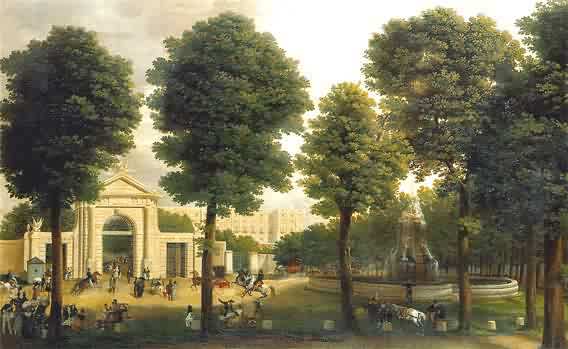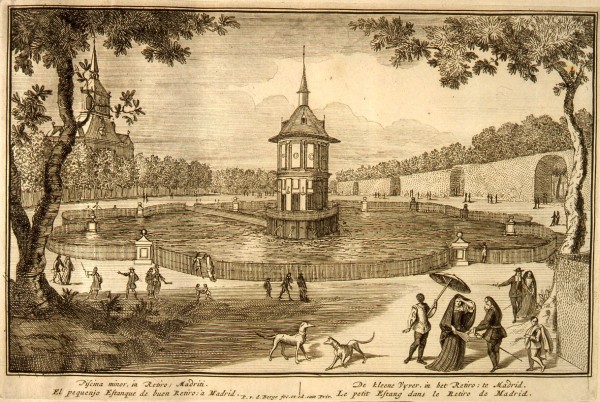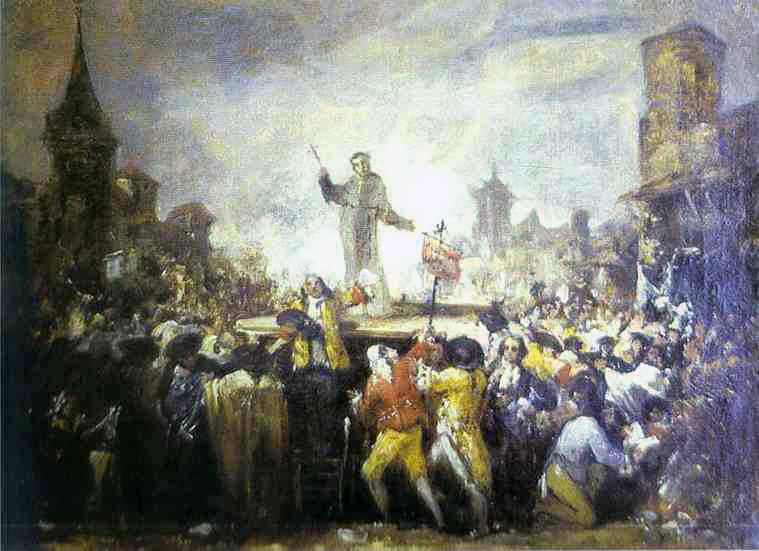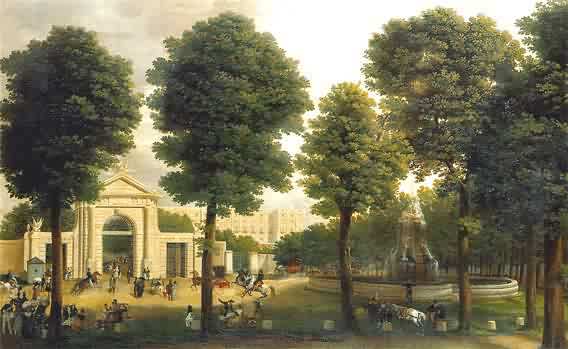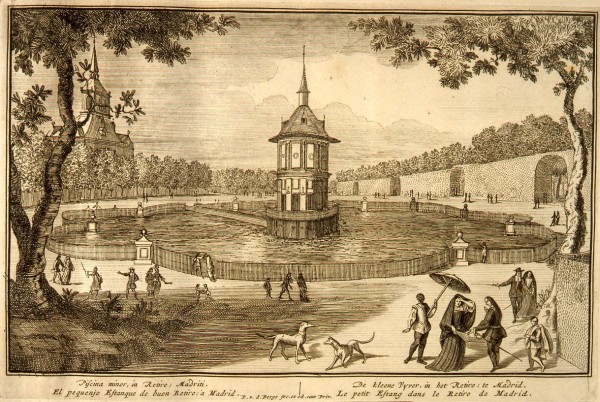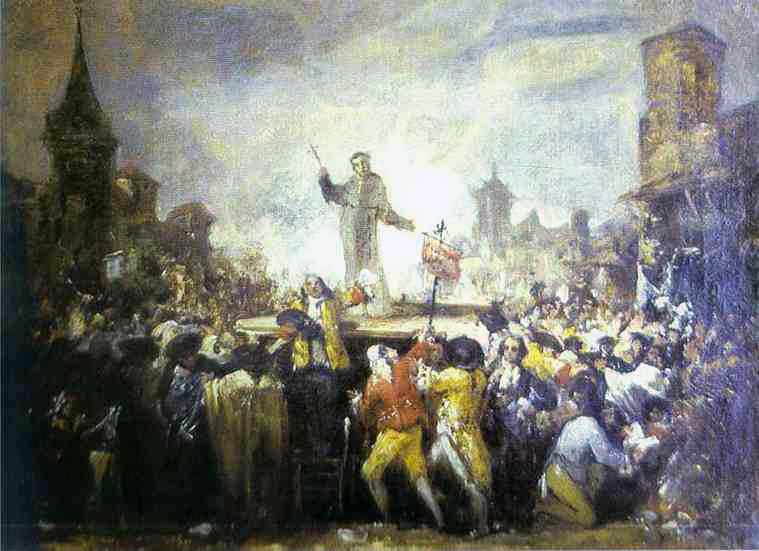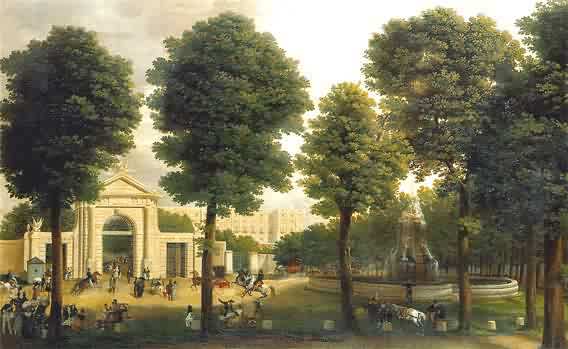Dr. Paul Schwennesen does a great job of rescuing the Iberian tradition of classical liberalism. He rightly argues—with a particular emphasis on Miguel de Cervantes, the School of Salamanca, and the treatment of Indian Americans in the overseas kingdoms of the Spanish Empire—that liberalism has deeper and wider roots than what many anglophones realize.
I will focus more on the other side of the Atlantic to complement Dr. Schwenssen´s essay. The Founding Fathers of the Latin American republics —the offspring of the Spanish Empire— were born and raised as Spanish-American subjects of the Catholic Monarchy, drank from the same enlightenment fountain as the Founding Fathers north of the Rio Grande and, particularly, from a classical liberal tradition that predates that of England, Scotland and France.
The commonplace narrative of the Latin American republics is that they have been plagued ever since their independence from Spain by “caudillismo”, religious fanatism, militarism, statism and centralism. Furthermore, these plagues are commonly assumed to have derived from a caricature of what the Spanish Empire was. This caricature, popularly known as the Black Legend,[1] is prominent in books about Spain´s history. This phenomenon extends to most books on the history of Hispanic America, where illiberal culture was supposedly transmitted at birth to its offspring.[2]
But as Schwennesen rightly points out, being conquered by the Spanish was not abhorrent in its totality and, in fact, included an innovative consideration for the rights of the conquered and the ethics of the conquest itself. The most vehement defenders of this caricaturized version of the past are some Hispanic Americans themselves. For example, both the former Mexican President Andrés Manuel López Obrador and his dauphine and successor Claudia Sheinbaum demanded from King Phillip of Spain apologies for the conquest of what is now Mexico.[3]
History at the service of power
This topic has interested me since I can remember, partly because I was born on October 12 and because it used to be commemorated with a day off from school in my country Ecuador, back when it was commonly referred to as “The Day of Race,” in reference to Hispanic heritage. In Spain, some still remember this date with pride as “The Encounter of Two Worlds.” Nonetheless, both in and outside of Spain, a more negative notion of said events has become more popular. According to the Mexican government´s website, Columbus´s discovery is now officially remembered in some countries as “The Day of Indigenous Resistance.”[4]
Granted, there is plenty to condemn about the Spanish Monarchy, as well as other empires. Slavery, widespread censorship, lack of religious freedom, to name a few. However, a fairer and more accurate judgment of the past would also include its positive aspects. The British ethicist Nigel Biggar from the University of Oxford explains in his book Colonialism: A Moral Reckoning[5] that portraying only the bad and ignoring any positives of the British Empire “makes good sense politically—provided that the end justifies any means, and you have no scruples about telling the truth.” He adds, “The unscrupulous indifference to historical truth indicates that the controversy over empire is not really a controversy about history at all. It is about the present.”
The Spanish historian Tomás Pérez Vejo argues that the purpose behind the total condemnation of Spain´s conquest of the Americas served a purpose —that of legitimizing the creation of the new states— and had a very clear consequence—erasing the diversity of ideas within the empire:
“We are prisoners of a history made by and at the service of the states. Perhaps the time has come for its ‘denationalization’. Contemporary nation-states needed, in their process of inventing a nation that would give them legitimacy, to construct a mythologized and homogeneous national memory. To this end, they carried out what we can call, without any exaggeration, a genocide of local memories, family memories, etc., a statement that does not mean condemning these memory policies…The genocide of memories was possibly inevitable and undoubtedly successful.Enough time has passed, however, to allow us to have an appraisal that is not marked by the urgencies of the political agenda. Returning to the wars of independence has, from this perspective, the will to recover part of these forgotten memories. We are what we tell ourselves we are. Our mental universe is made of stories that we forget, remember and distort.”[6]
Pérez Vejo sought to show how much our view of the three centuries of viceroyalties within the Spanish Empire has conditioned our view of current Latin American societies, its problems and possible solutions. He claims several alternatives were indeed considered between 1810 and 1821, so coming back to analyze the wars of independence would not only reveal that they really were civil wars, not wars of independence, and that would allow us to widen our understanding of the present and our options for the future.
Among the forgotten alternatives lost in the fog of revolutions was the Hispanic classical liberal tradition. What characterizes this tradition? First, the reconciliation of the apparently conflicting concepts of reason and faith and of the need to reform while respecting traditions and customs. Second, a preference for local government within a federated kingdom or, afterwards, a national government limited, in both cases, with checks and balances. Third, the co-existence of diverse races and, at some point, creeds. But these liberal traditions have been mostly forgotten and are now perceived by most as imported.
The great Venezuelan liberal Carlos Rangel, in his book The Latin American Their Love-hate Relationship with the United States[7] said that the history of Iberian America during the period of the Catholic Monarchy tends to be a source of embarrassment because we are a product of the official imperial policy of “mestizaje” (crossbreeding) and the negative interpretation that has resulted from such a policy: that we descend from both the conquistadors and the conquered, the first always being the villains and the latter always their victims. This overly simplified version of the past leads us to a persistent victimization in our culture. It also leads us to an unhealthy separation from our western roots.
The fake divorce from the West
Most authoritarian projects in Latin America have tried to portray classical liberal ideas –such as the right of property, the rule of law and the separation of powers, and freedom of expression and association— as pernicious imports from our Western conquerors. First the Spanish, then the Americans. Rangel explained that the old European myth of “the good savage” supposedly uncorrupted by civilization, the supposed proof of “human innocence” before “the fall”, was a popular fable in the XIX century. This narrative of “the good savage” versus “the bad foreign conqueror” has served those in power to keep most of the countries in the region from advancing towards more inclusive institutions and open societies.
Yet in spite of this myth´s power, when you look at everyday customs you realize we are very much a part of the West, not just because we are influenced today by Hollywood and all the popular culture fads from both the United States and Europe, but also because we share many of the ideas that made open societies possible in the West.
Usually, it is thought that whatever liberal tradition made it to Hispanic American republics was almost solely from an Anglo-Saxon or French source. Also, it is normally thought that there was no significant contribution from Hispanic sources for the political changes that paved the way for modern Europe and the United States. However, do you know what book
John Locke,
John Adams,
Thomas Jefferson,
James Madison and Francisco de Miranda —one of Venezuela´s Founding Fathers— had in common? It was the Spanish Jesuit Juan de Mariana´s (1536-1624).
The General History of Spain
Did you know that the famous “No taxation without representation” is a paraphrase by Locke in his Two Treatises on Government (1689) of Mariana´s On the King and the Royal Institution (1599).[8]
John Adams was also a fan of this book; his copy is still available at the Boston Public Library.[9]
Furthermore, because of the “controversies” in the city of Burgos in 1504 and those in the city of Valladolid in 1551, where the rights of the indigenous peoples were debated, ius gentium or “law of nations” was born. For this reason, there is a room —the Council Chamber— in the United Nations honoring the salmantine Francisco de Vitoria (1483-1546) as “the founder of modern international law.”[10]
These curious coincidences reveal the existence and significant influence of the relatively unknown Spanish Enlightenment of the 16th century, referred to today as the School of Salamanca, which Dr. Schwennesen has rightfully credited.
Which Western Tradition?
To the south of the United States, we grow up learning that our republics were founded upon the principles of either the
French Revolution and
Rousseau´s ideas or on those of the
American Revolution. However, if one reads the independence proclamations on both sides of the Atlantic, the whole of the Spanish Empire revolted against a usurpation of power by
Napoléon Bonaparte and swore allegiance to the principles of the sovereignty of the governed according to Francisco Suárez´s (1548-1617) ideas, another Jesuit from the School of Salamanca.
It was this theologian, philosopher and jurist whose work we see crystallized in the multiple declarations of independence within the Catholic Monarchy. His pactum translationis was about the origin of civil authority. Thus, when in the Iberian Peninsula and in the overseas kingdoms many proclamations appeared to establish “juntas” (boards) and “cabildos” (townhalls) we witnessed, according to historian Carlos Stoetzer, “the purest Hispanic traditions.” He explained Suárez´s pact:
“Since the sovereign was a prisoner of the French [in 1808] and thus unable to exercise the power that the people had transferred to him, authority reverted to the popular source, and the people were justified in assuming civil authority until the return of the king or finding another constitutional solution as a permanent solution to the monarchical crisis.”[11]
Suárez´s
pactum translationis is in line with an even older Hispanic tradition: that of the “Fueros de León”, a charter or set of laws issued by King Alphonse V in 1017 that limited government power. Though this Hispanic legacy does not imply a representative form of government, it did contain its seeds. As
Leonard P. Liggio explained in his essay “The Hispanic Tradition of Liberty”:
In the flowering of Liberalism in the early nineteenth century, one of Hayek’s favorite authors, Benjamin Constant, raised a serious question. He challenged what he perceived to be Charles Dunoyer’s determinist view of progress. Constant asked: If we believe that economic and technological improvement is accompanied by improvement of moral sentiments, how do we explain the fact that while all of the more advanced peoples of Europe – French, Lombards, Flemish, Dutch, Germans, and Austrians, – accept the tyranny of Napoleon Bonaparte, it was the Spanish peasants alone who rose up against the French occupation, and exhausted and then destroyed Napoleon’s rule? Constant saw the Spanish peasants as the liberators of Europe.[12]
Furthermore, this belief that the people under the Hispanic Monarchy had at that point been the standard bearers of liberal principles —which is why Spanish on both sides of the Atlantic rebelled against Napoleon Bonaparte and in defense of the Crown— was the reason why many classical liberals still believed that progress was possible even within the Empire. Argentinean historian Carlos Rodríguez Braun affirms that the evident collaboration between the “ilustrados” (enlightened), the partisans of independence and the government “constitutes a problem that the nationalist historiography has not been able to solve.”[13] The Commerce Consulates or “Consulados de Comercio” are a prime example of such collaboration. These were created under royal auspices and from those influential offices, many such as Manuel Belgrano and Juan Hipólito Vieytes from the Río de la Plata region and José Ignacio de Pombo from Cartagena de Indias promoted reforms within the empire that would further trade liberalization, lower taxes, demand equality under the law, protection of property rights and freedom of expression.
The Classical Liberal Tradition in Spanish America
A more nuanced understanding of the history of the Spanish Empire and its offspring reveals a rich classical liberal tradition that, even though it has not prevailed in most parts of the Hispanic world, did exist. And it was expressed at different times and in different places in some of the most important institutions and by some of the most prominent members of Spanish and Iberian-American society.
Endnotes
[1] Roca Barca, María Elvira. Imperiofobia y la leyenda negra. 3ra. 2017. Reprint, Madrid, Spain: Siruela, 2018.
[2] Ríos Saloma, Martín F; Tomás Pérez Vejo, Luis Francisco Martínez Montes, José María Ortega Sánchez, María Elvira Roca Barea, and Guadalupe Jiméznez Codinach. La disputa del pasado: España, México y la leyenda negra. Edited by Emilio Lamo De Espinosa. 1ra. Madrid, Spain: Turner, 2021.
[3] BBC News Mundo. “AMLO solicita por carta al Rey de España y al Papa que pidan perdón por la conquista de México,” March 25, 2019.
https://www.bbc.com/mundo/noticias-america-latina-47701387.
BBC News Mundo. “México y España: Cómo justifica Claudia Sheinbaum su decisión de no invitar al Rey Felipe VI a su toma de posesión (y qué tiene que ver la historia entre ambos países),” September 25, 2024. https://www.bbc.com/mundo/articles/cvgl75xy352o.
[4] De información agroalimentaria y pesquera, servicio. “Día de la raza y el Nuevo Mundo.” https://www.gob.mx/siap/articulos/dia-de-la-raza-y-el-nuevo-mundo?idiom=es/#:~:text=El%20D%C3%ADa%20de%20la%20Raza,Espa%C3%B1a%20y%20los%20Estados%20Unidos.
[5] Biggar, Nigel. Colonialism: A Moral Reckoning. 1st ed. William Collins, 2023.
[6] Pérez Vejo, Tomás. Elegía criolla: una reinterpretación de las guerras de independencia hispanoamericanas. Kindle. Editorial Crítica, 2019.
[7] Unfortunately translated with too much leeway from its original and better suited title in Spanish: From the Good Savage to the Good Revolutionary.
Rangel, Carlos. The Latin Americans: Their Love-Hate Relationship with the United States. 2nd ed. Routledge, 1987. https://www.routledge.com/The-Latin-Americans-Their-Love-hate-Relationship-with-the-United-States/Rangel/p/book/9780887386923?srsltid=AfmBOoq5Uko4qjMWx7toLf_j5Magshh9AwLXlAwVAAn_vptSUIjRaOe3.
[8] “…the king cannot impose new taxes without first having the consent of the governed”
--Juan de Mariana, On the King and the Royal Institution (1599)
“They must not raise taxes on the property of the people, without the consent of the people”
---John Locke, Two Treatises on Government (1689)
[9] Mariana, Juan de. De Rege et Regis Institutione Libri III: Ad Philippum III Hispaniae Regem Catholicum. Eiusdem De Ponderibus & Mensuris Liber: 1611. Available here: https://archive.org/details/joannismarianaeh00mari/page/n5/mode/2up.
[10] The Council Chamber. United Nations:
https://www.un.org/ht/node/36366
[11] Stoetzer, O. Carlos. El pensamiento político en la América española durante el periodo de la emancipación (1789-1825). Vol II of II volumes. Madrid, Spain: Instituto de Estudios Políticos, 1966, p. 67.
[12] Liggio, Leonard, “The Hispanic Tradition of Liberty”. The Philadelphia Society, January 12, 1990.
https://phillysoc.org/liggio-the-hispanic-tradition-of-liberty/
[13] Rodríguez Braun, Carlos. “Early Smithies Economics in the Spanish Empire: J.H. Vieytes and Colonial Policy.” The European Journal of the History of Economic Thought 4, no. 3 (1997): 444–54. https://www.carlosrodriguezbraun.com/wp-content/blogs.dir/4/files/2011/05/vieytes.pdf.
